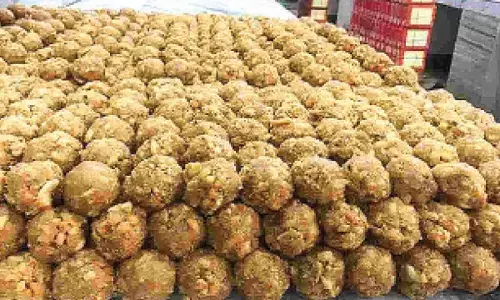Menstrual cups: A safe, sustainable mode of protection

Menstrual cup is a reusable female hygiene product used during menstruation. As long as women follow the safety guidelines and use it properly, it is safe to use.
Bengaluru: Menstrual cup is a reusable female hygiene product used during menstruation. As long as women follow the safety guidelines and use it properly, it is safe to use. Doctors say that they are an eco-friendly alternative to sanitary pads and tampons. Improper use of menstrual cups can cause leakage, irritation, allergies and rashes, urinary problems and can lead to infections. If someone is using an intrauterine device (IUD), a menstrual cup can decrease its effectiveness which can cause the IUD to no longer function. Also, if someone is not using it properly, it can cause small injuries or pain and especially happens to those with long nails or using an oversized cup.
According to the national family health survey 2019-21, only 0.3% of women in Karnataka in the age group 15-24 use menstrual cups during their periods. The number is the same at the country level.
Speaking to The Hans India, Dr N Sapna Lulla, Lead Consultant - Obstetrics and Gynaecology, Aster CMI Hospital, said, "Menstrual cups are made of silicone. There's a chance the silicone or rubber material can cause an allergic reaction. It can also cause irritation if the cup isn't cleaned properly and some people find it uncomfortable to use. Also, menstrual cups can be clumsy to handle at work place or public restrooms like restaurants and in multiplexes. That can be difficult to autoclave and store. The need for a menstrual cup sterilizer prior to use and storage adds to the inconvenience."
They can also at times cause vaginal tears and allergic reactions on vaginal mucosa. Deciding on the size as a trial and error, a very small cup can cause a leak, and a bigger cup will add to the discomfort. There is need to empty the cup every few hours in times of heavy flow, Dr Sapna Lulla said.
"Sanitary pads contain super-absorbent polymers (SAP), which don't decompose and can contaminate soil, water and air. While menstrual cups are eco-friendly, reusable, and durable compared to sanitary napkins, It can reduce the cost one has to bear during the menstrual period. However, women with severe clinical uterine prolapse are advised not to use a menstrual cup. And those who experience cervical or vaginal prolapse after childbirth may find it uncomfortable to use. But they are completely safe and considered one of the best devices to use", added Dr N Sapna Lulla

















